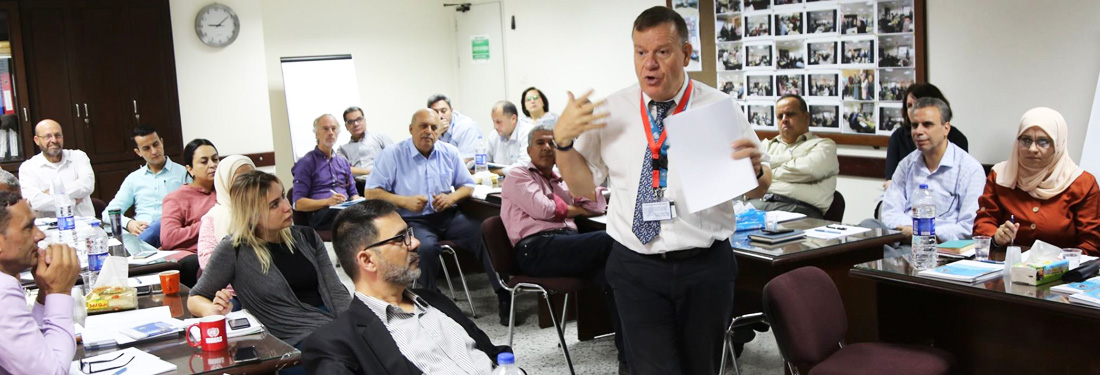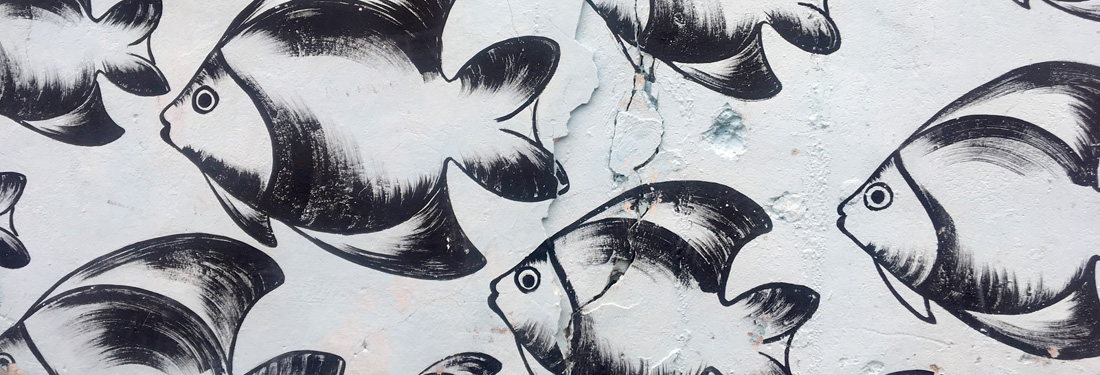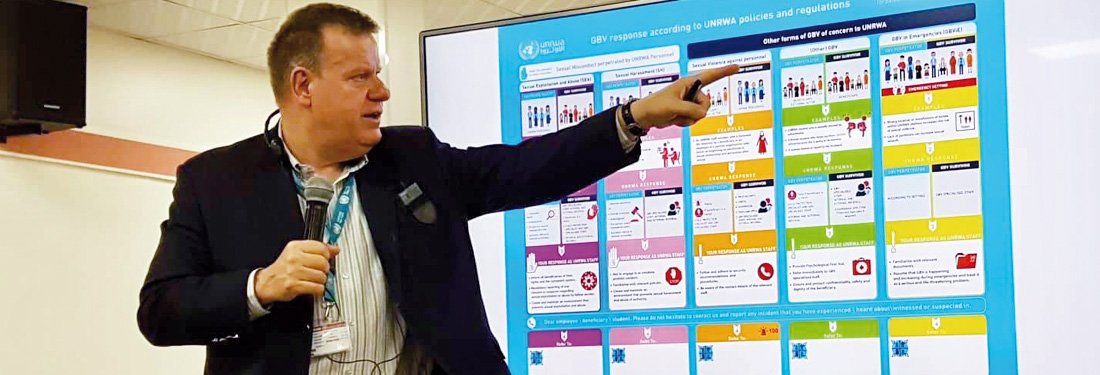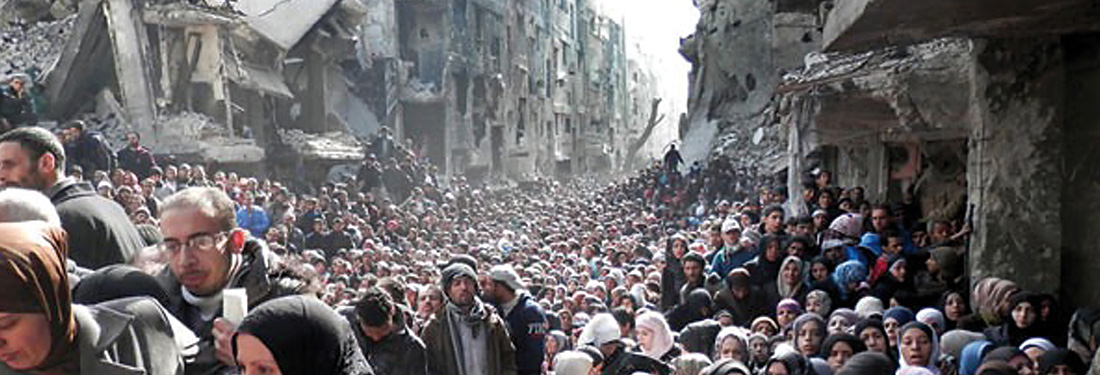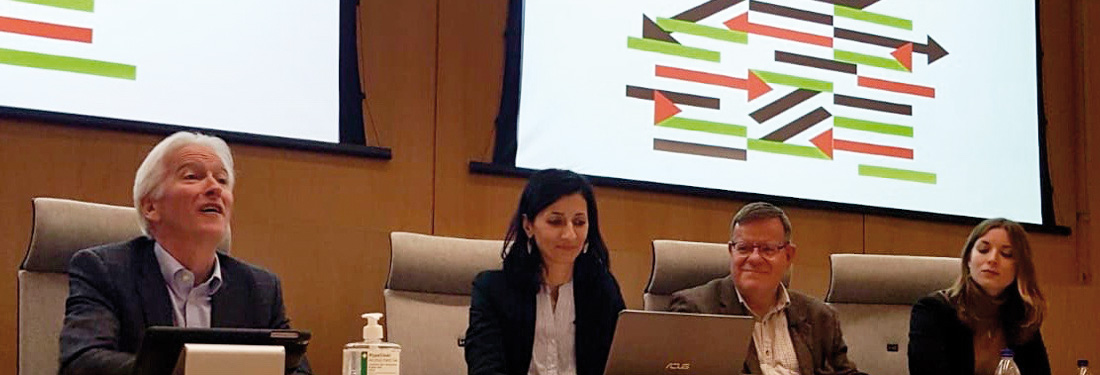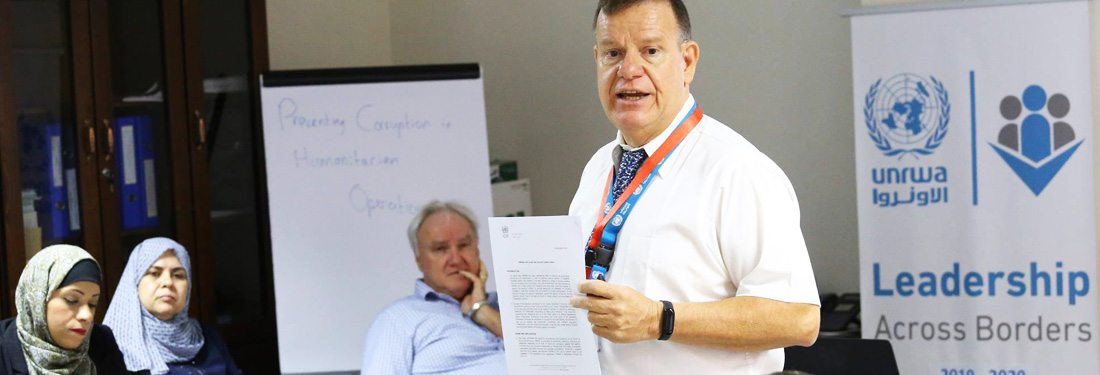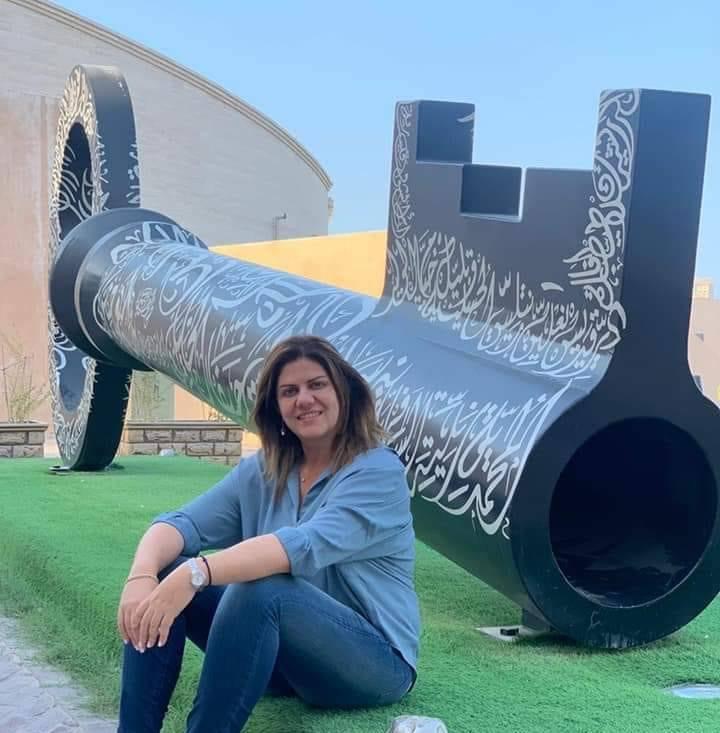
This month marks the 74th anniversary of the Nakba, the catastrophe that befell the Palestinians with the Jewish-Zionist colonization of their homeland culminating in the establishment of the State of Israel in large parts of Mandate Palestine and the forced displacement of the vast majority of Palestine’s indigenous population. Not only were 750,000 Palestinians turned into refugees between 1947 and 1949, but they were also subsequently denied return, dispossessed, and de-nationalized en masse, all in flagrant violation of international law. The same applied to the 350,000 Palestinians that were uprooted during the 1967 War, half of them refugees from the 1948 War. The policy of depopulation and denial of return has continued until today, with ongoing threats of forced displacement in Sheikh Jarrah in East Jerusalem, in the Naqab in the South of Israel, and in Masafer Yatta in the West Bank, just the latest examples of the Ongoing Nakba.
I write this post as we grief with unspeakable anger the death of Shireen Abu Akhleh, the Palestinian-American Al Jazeera journalist who reportedly was “assassinated in cold blood” while covering the Israeli occupation forces storming of Jenin refugee camp in the West Bank on 11 May 2022. The killing – which according to UN experts may amount to a war crime – highlights once again the danger to which journalists reporting human rights violations in the occupied West Bank and blockaded Gaza Strip are exposed and prompts renewed calls for their protection. An unprecedented assault on mourners during the funeral procession in East Jerusalem, a two days later, showed Apartheid Israel at its worst. The commemoration of the Nakba further happens as we are equally infuriated after unprecedented Israeli assaults on the Al Aksa Mosque in Jerusalem during and after the Holy Month of Ramadan and as we remember that more than 4,400 Palestinians, including women and children, are currently held in Israeli jails, more than 500 of whom are held in “administrative detention” under which suspects are detained without charge or trial for an indefinite period.
The anniversary is further situated against the backdrop of two momentous developments, the implications of which we are only beginning to internalize: the occupation of Ukraine in a war in which millions have become refugees, yet again, and the tsunami of reports providing overwhelming evidence that Israel’s treatment of the Palestinians meets the definition of apartheid.
Starting with the first, the international community’s immediate reaction to the Russian invasion comprised of strong public condemnations, delivery of weapons to Ukraine by Europe and the US, the imposition of sanctions by the EU and Western Governments, boycotts by academic, cultural and sports institutions, and divestments by the corporate sector. Taken together, these actions make it clear that a large majority of states, organizations, corporations, and ordinary citizens, despite the rise of populism in many countries, continue to attach major importance to the rule-based international order and the protection of human rights. To date, the injustices inflicted on the Palestinians, from the days of the British Mandate, through the establishment of the State of Israel, until the present day, have not met with a similar international resolve. Palestinian rights fell prey to Western self-interests, guilt caused by the Holocaust, and Israeli propaganda. However, decades of Palestinian resistance, an increasing and unprecedented level of grassroots and institutional solidarity with the Palestinian cause, in addition to the beginning of a fundamental shift in the position of some of the key traditional media (including the New York Times) have lend increased credence to the Palestinian quest for justice and liberation. One of the more positive effects of globalization is the interconnectivity of various international struggles for justice, liberation, and human rights. From the Anti-Apartheid Movement in South Africa to Black Lives Matter and justice for Ukraine—they all, in different ways, play an important role in framing and articulating the Palestinian struggle for liberation as one against institutionalized subjugation, occupation and denial of fundamental rights.
The second development is a manifestation of this trend. After decades of advocacy by Palestinian organizations such as Al Haq, drawing on the lessons from South Africa, towards viewing the situation in Palestine/Israel through the prism of apartheid, during the past 24 months they were joined by two major Israeli human rights organizations, Yesh Din and B’Tselem, two prominent international human rights organizations, Human Rights Watch and Amnesty International, and the outgoing UN Special Rapporteur for Human Rights in the occupied Palestinian territory, Michael Lynk. Their reports contain a huge amount of meticulously compiled evidence and thorough analysis, leaving no other conclusion than that the situation in the totality of Palestine-Israel amounts to the international crime of apartheid. Of these reports, that of Amnesty International, published in February of this year, is of particular significance to the question of the Palestinian refugees. After noting that the Israeli version of apartheid is inherent to the very partition of the territory (of former Mandate Palestine) and population into units with different legal status, the report extends this to the refugees, by arguing that denying the Palestinian refugees’ right to return to the land and homes from which they were displaced in 1948, is the central mechanism of Israeli apartheid. It is here that Amnesty goes beyond the analysis in the other reports (even though the refugee issue was already mentioned in the 2017 ESCWA report authored by R. Falk and V. Tilly). The right to return is mentioned in the report more than 50 times. It highlights that Israeli control—through denial of return—is not limited to Israel’s borders but is directed also at the Palestinians who have been uprooted over the years, given that their absence is essential for maintaining a Jewish majority, and that as such apartheid will necessarily prevail so long as the refugees are prevented from returning.
What Amnesty’s report makes abundantly clear, as the Palestinians always have, is that maintaining a regime of Jewish supremacy, with split rights for the different categories of Palestinian people—those in the diaspora, in Israel, in the West Bank, in East Jerusalem and in Gaza—will not offer a sustainable solution for the ongoing injustice. As the experience in South Africa has taught us, apartheid is not something that can be reformed but rather must be abolished in its entirety. As Amnesty states, “[d]ismantling this cruel system of apartheid is essential for the millions of Palestinians who continue to live in Israel and the occupied territories, as well as for the return of Palestinian refugees”. Abolishing apartheid requires dismantling all manifestations of Jewish supremacy, exclusivity, and privilege, including laws, policies, and practices.
The implications of this are far reaching. Abolishing apartheid is not compatible with the vision laid out in Israel’s Jewish Nation-State Law, and as such requires a major rethink of the Question of Palestine. At present, roughly seven million Palestinians and an equal number of Israeli Jews live in the land between the river and the sea—both entitled to self-determination and the protection of other human rights—what will be their future once Palestine is fully decolonized? What will happen to the territory that is today the Gaza Strip, Israel, and the West Bank, including the Israeli settlers? Is there merit in maintaining the two-state solution to resolve the Question of Palestine or is a new paradigm needed? In a recent poll conducted by the Palestinian Center for Policy and Survey Research (PSR), 33 percent of Palestinians in the occupied Gaza Strip and West Bank said they support a one-state solution. That number is up from 24 percent just three month ago and Palestinians who support a one-state solution are typically younger, nationalist, and secular.
At the conclusion of a course for young Palestinian lawyers and other professionals offered as part of ARDD’s Question of Palestine Program, in partnership with Birzeit University, participants were asked to “imagine Palestine-Israel beyond apartheid, occupation, and the blockade of Gaza”, and to present their proposals to the group. The task was perceived as daunting and indeed it is. Experiences in other parts of the world have shown that efforts to face and redress historic wrongs are rarely simple, rapid, uncontested, or complete. Not surprisingly, students had different views on the road ahead. There was consensus on one point, however: that refugee return must be an integral part of any solution.
The students were helped and inspired by an increasing body of literature and initiatives that break through the mold and look at the Israel-Palestine situation afresh—from the lifelong work of Dr. Salman Abu Sitta making the case for Palestinian return, to the writings of Bashir Bashir, Laila Farsakh and other Palestinians urging a reset in thinking about Israel-Palestine, to groundbreaking articles and books by Israeli and American Jews such as Yaraa Benger-Alaluf, Omri Boehm, and Peter Beinart, calling for a radical change to the status quo and making the case for a return of the Palestinian refugees.
Much more reflection and discussion on the subject is needed, at the governmental level, by international organizations, academics, activists, the business community, and others. I am proud to be working with ARDD in supporting dialogue on those important questions through its Question of Palestine Program and Global Network on the Question of Palestine. The ‘BDS reflex’ with respect to Ukraine and the anti-apartheid discourse serve as inspiration and strengthen our resolve to continue the work for justice for Palestine and the Palestinians. After long years of struggle, the UN and wider international community eventually took a strong stand against apartheid in South Africa, helping to bring it to an end. As Nelson Mandela said, “our freedom is incomplete without the freedom of the Palestinians.”
An abridged version of this article was posted on ARDD’s website.

